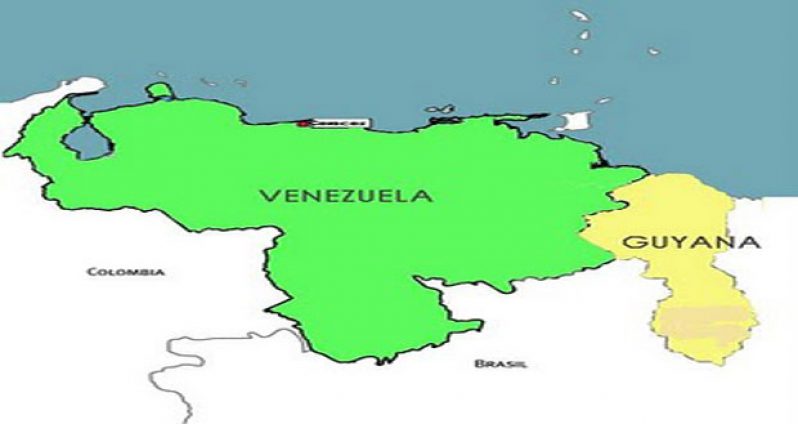(Analysis by Rickey Singh)
CONTRADICTIONS IN politics could be amusing, worrying and even dangerous for varying countries and cultures—as occasionally evidenced in our own Caribbean Region. A current example involves superpower USA, Venezuela and Guyana. In the political mix are a lingering colonial-era territorial claim by Venezuela to some two-thirds of Guyana’s 83,000 square miles and a resurgence of sabre-rattling politics by Caracas to frustrate Guyana in carrying out new oil exploration projects in defined territorial waters.
Political observers across the USA and the Latin America/Caribbean Region could hardly miss the irony of Washington’s quick response to “stand firm” with Guyana in its official complaints of unwarranted political aggression by the government in Caracas in the disruption of the Guyanese Government’s oil exploration project.
After all, under successive administrations of the late Venezuelan revolutionary leader, President Hugo Chavez, there continued to be peaceful bi-lateral cooperation between Caracas and Georgetown that included ‘friendship’ visits and shared political and cultural objectives in the promotion of peaceful economic development.
While President Chavez pressed ahead with various regional economic development and cultural projects, Guyana remained an active participant and beneficiary among CARICOM partners.
No controversy erupted over colonial-based territorial claims of the 19h century which, in any case, remained a matter under consideration by the “good office” mechanism of the United Nations Secretary General. This pattern was continued by President Nicolas Maduro following the death by President Chavez from cancer while still in office.
However, there has been an apparent shift in President Maduro’s administration of ‘friendly’ relations with Guyana between 2013 and recent months that resulted in recurring instances of foreign oil companies, among them U.S-owned, engaged in oil exploration projects with Guyana experiencing hostile treatment by Venezuelan naval and immigration authorities.
For his part, amid bitter complaints by Guyana’s President Donald Ramotar, President Maduro has maintained his public silence, while avoiding any friendship gestures, and fully aware that, like Venezuela, Guyana also belongs to representative Caribbean/Latin American organisations.
Last week, following Guyana’s Foreign Minister, Carolyn Rodrigues-Birkett’s initiative to sensitise foreign governments and international institutions and agencies to the endangering of peace by Venezuela’s disruptive policy to the country’s future economic and social development, the U.S. State Department lost no time in making clear its “firm stand” with the Guyanese Government and people.
Conscious that leading American oil exploration companies were also involved in Guyana’s quest, U.S. Charge’d Affairs, Bryant Hunt, made clear President Obama administration’s readiness to support the objections by Guyana. Naturally, he avoided getting involved in signalling the support that would be forthcoming from the USA.
Meanwhile, the Guyana Government is keeping the UN Secretary General, as well as all leading Latin American and Caribbean organisations, informed on developments as diplomatic moves continue between Georgetown and Caracas.
(Rickey Singh is a noted Caribbean journalist based in Barbados)
This commentary appears courtesy of the Trinidad Express
BIG GUYANA/VENEZUELA ROW
SHARE THIS ARTICLE :
Facebook
Twitter
WhatsApp




.png)









